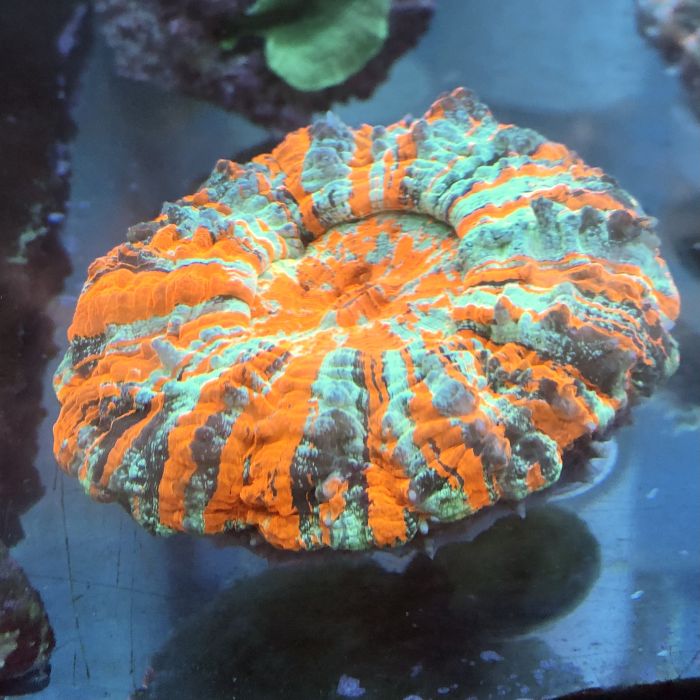Donut Coral (Ultra)
This coral receives most of its energy by utilizing the photosynthetic algae contained within its tissues. It will benefit from occasional feedings of meaty foods such as mysis shrimp, enriched brine shrimp, chopped krill, pellets, etc. Some corals may also respond to phytoplankton. Its transparent feeding tentacles extend mainly at night, although it can learn to feed during daylight hours.
Open brain corals are able to expand their tissues to a surprising size, and are often called Meat corals. They thrive under dim to moderate light, and may be damaged by intense illumination. They are often nipped on by fish, especially angelfish. Many open brains are sensitive to the chemicals released by soft corals, such as leathers, lemnalia and mushrooms; the use of carbon filtration (changed frequently) and regular water changes can minimize this.
Space should be provided between corals to allow for growth and expansion; although open brain corals possess feeding tentacles they are prone to being stung and damaged by neighboring corals.
The Donut coral is one of the most uncommon open brain corals, which is also found in a huge variety of possible colors and patterns. Its rounded shape, wrinkly texture, and very puffy flesh are also incredibly appealing. All of these qualities make it one of the most highly sought after LPS corals. Ultra Australian specimens are always vividly colored and are more rare and impressive than those from other locations. Most corals are multicolored and may have a contrasting center or stripes.
The Donut coral used to be classified under the genus Scolymia, but was recently changed. It is recommended for well established aquariums, as it may recede from any less than ideal condition, leading to possible algae overgrowth or infection.
Water flow is best provided as turbulent flow with the use of a wave maker or surge action. Constant laminar flow is very damaging and could cause death of the coral. Alkalinity, calcium, magnesium and strontium are required for growth and should be checked regularly.
- Difficulty: Intermediate
- Growth Speed: Slow
- Lighting: Low - Medium
- Average Placement: Low
- Water Flow: Low
- Temperament: Semi-Aggressive

